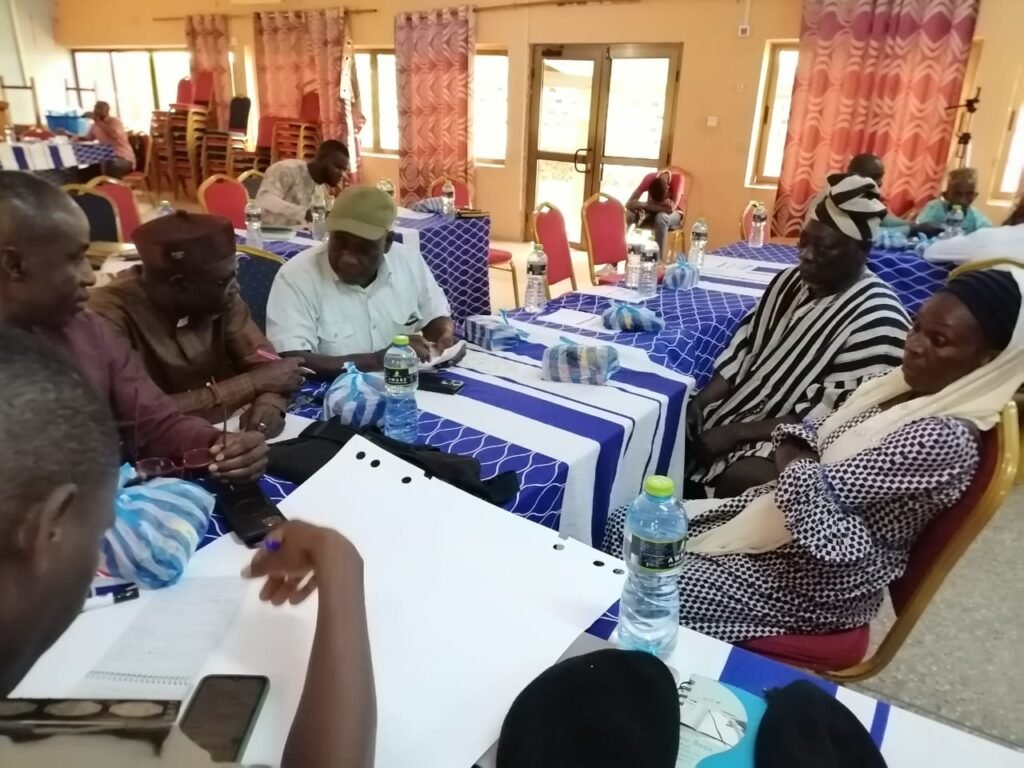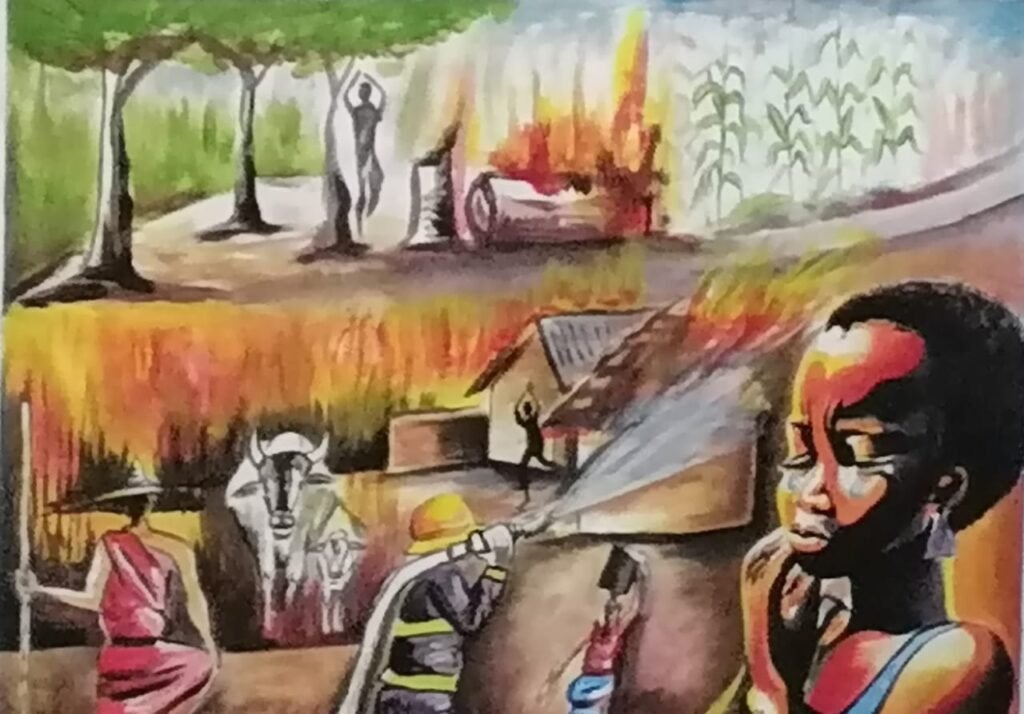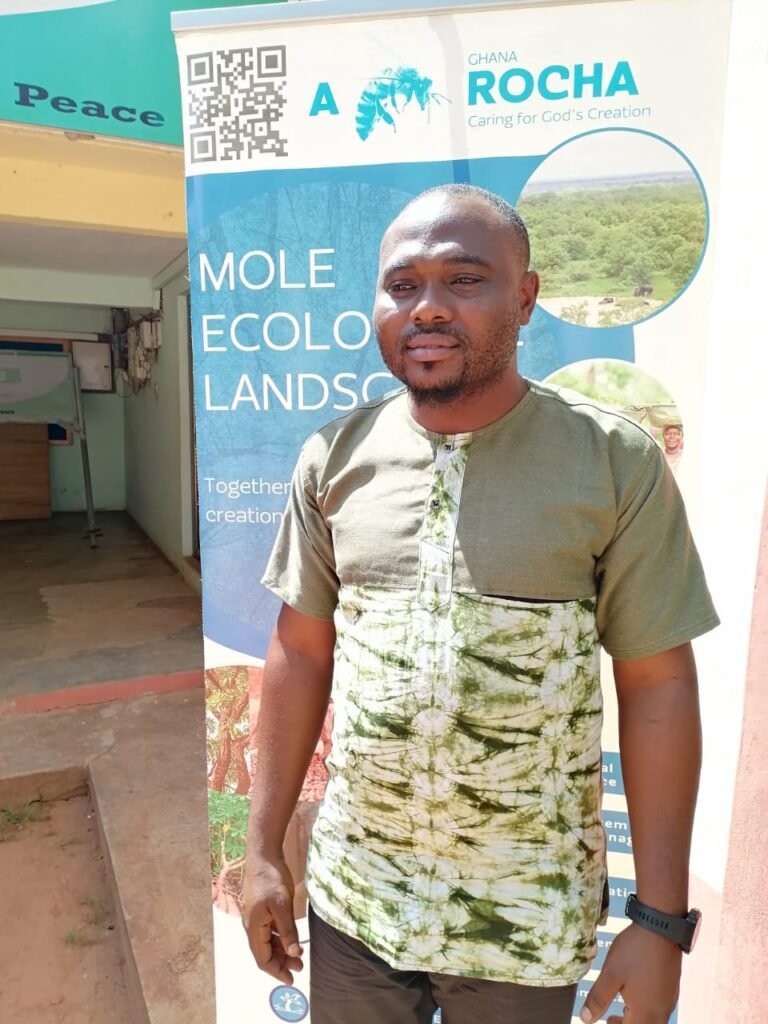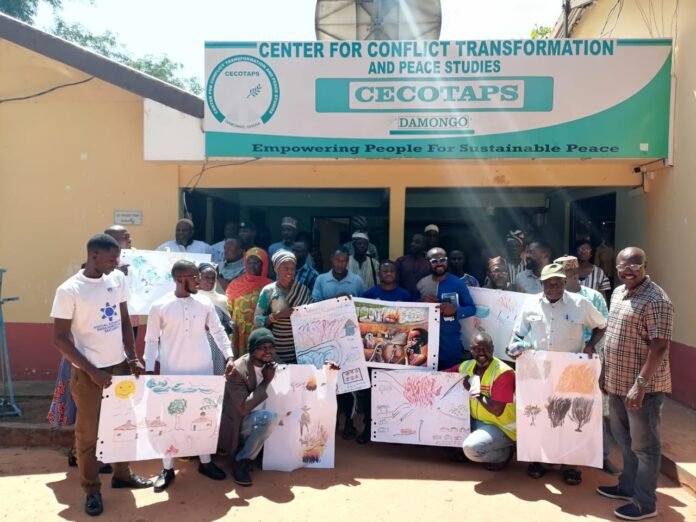As Northern Ghana grapples with frequent bushfires, impacting livelihoods, biodiversity, and ecosystem services, King’s College (UK) partnered with A Rocha Ghana to hold a two-day training workshop in the Savannah Region. The workshop brought stakeholders together to improve fire management in Ghana, ensuring effectiveness and inclusiveness.
A research by King’s College indicates that traditional fire management practices are often ineffective or unsustainable, while local communities’ needs and perspectives are frequently overlooked.
Rahinatu Sidiki Alare, a PhD student at King’s College (UK) sharing her research findings on fire governance in Northern Ghana, highlights that fire management in Northern Ghana has marginalized some livelihoods, and policies often describing fires differently, which according to herher, a need to bridge the gap between policies and implementation.

Alare, emphasizing on the workshop’s goal, said it’s time to move beyond talk and seek effective solutions. Aiming to establish a network of stakeholders spearheading fire management issues in Northern Ghana, she advocated for herders’ inclusion in fire volunteer programs, saying they are most often overlooked in fire management systems.
Mr. Godwin Evenyo Dzekoto, Project Manager for A Rocha Ghana (Northern Sector), noted that even though the Savannah Region’s ecosystem relies on fire for ecological balance, however, annual bushfires have disrupted this balance.
According to him, A Rocha Ghana has worked with stakeholders to co-manage decisions, promote inclusivity, and reduce fire levels to acceptable degrees, ensuring ecosystem balance.

Dzekoto highlighted their efforts in training volunteers, equipping them with early warning systems and fire indexes, and integrated traditional knowledge with modern solutions.
The training workshop aimed to showcase fire’s positive aspects, engage stakeholders in decision-making, and develop effective fire management solutions.

Participants at the end, developed an adaptable framework for equitable fire management, engaging local communities to enhance biodiversity conservation, ecosystem services, and livelihood resilience.
Stakeholders included NGOs, Traditional authorities, Government bodies, Farmers, Herders, Beekeepers




